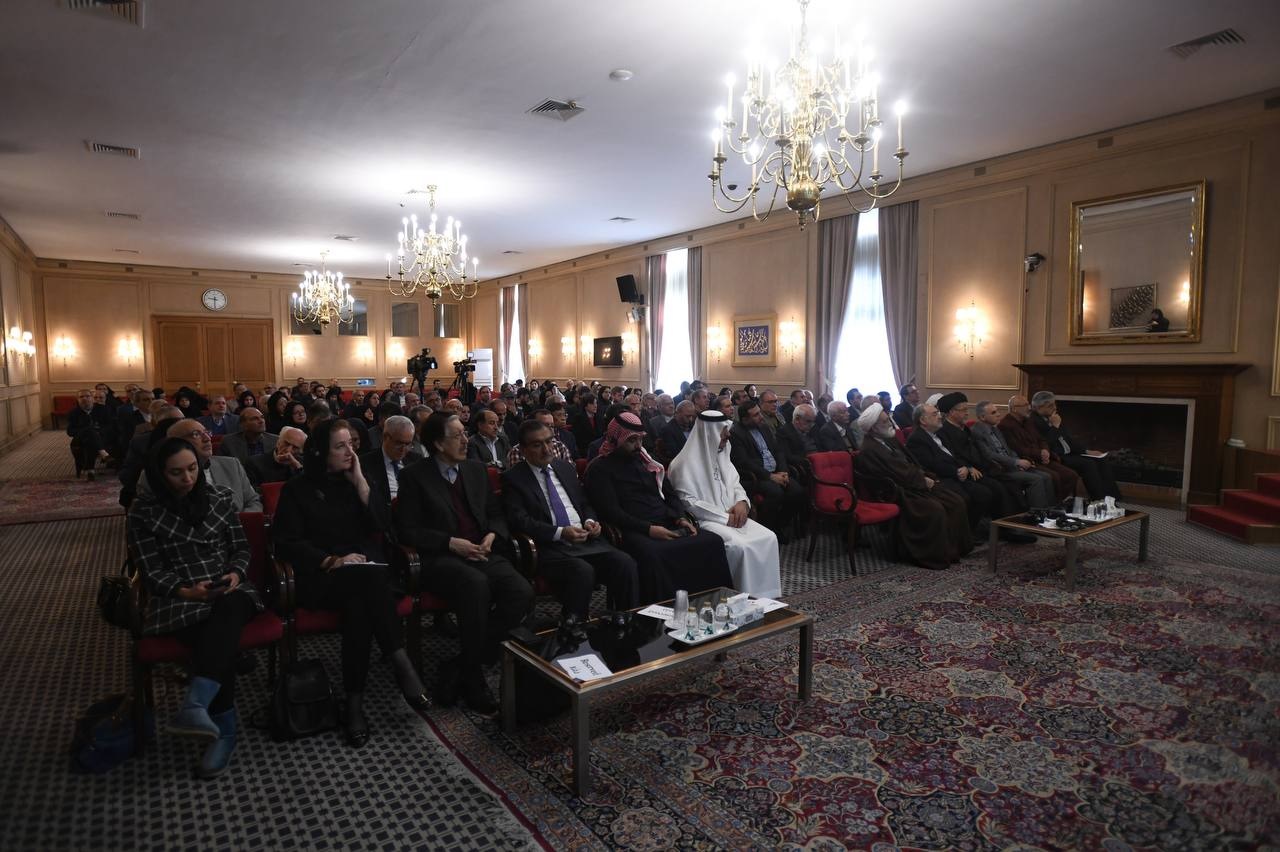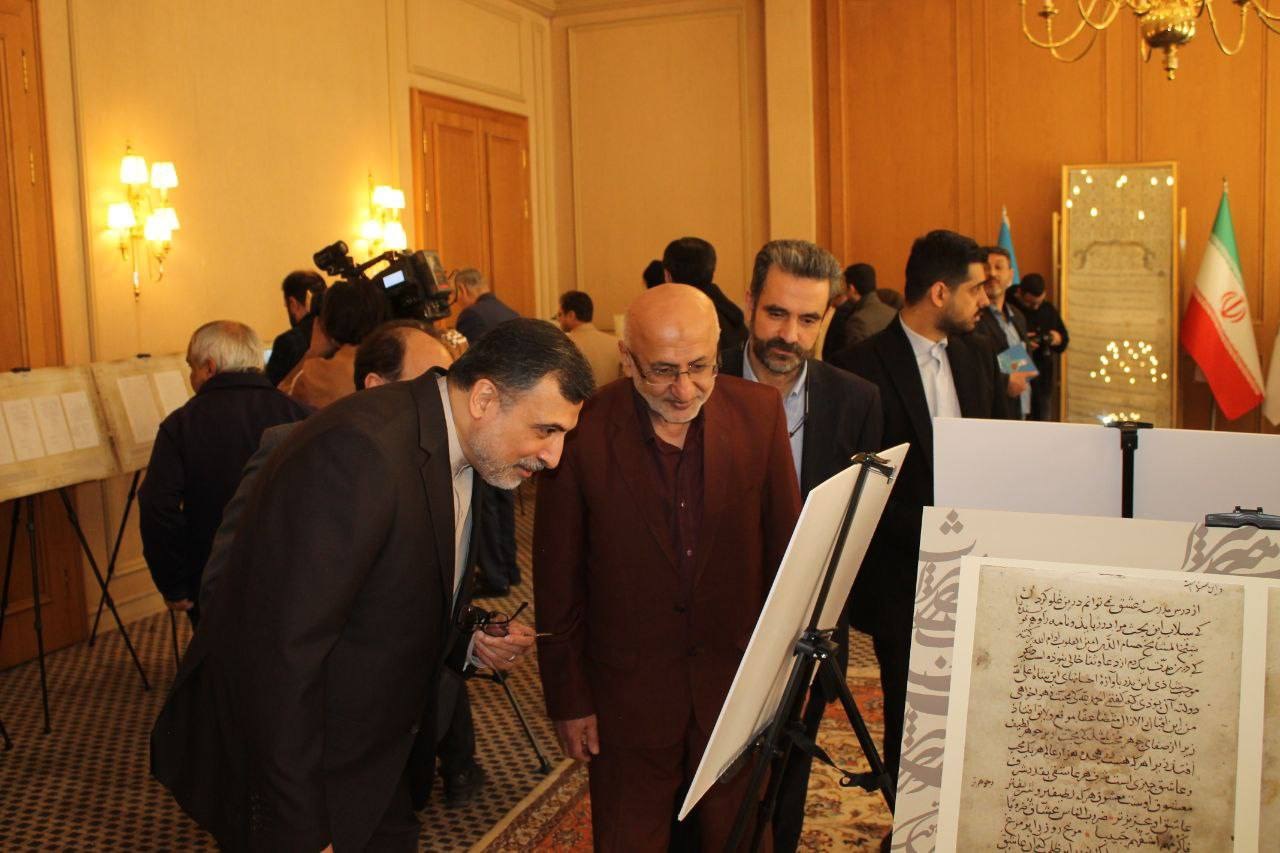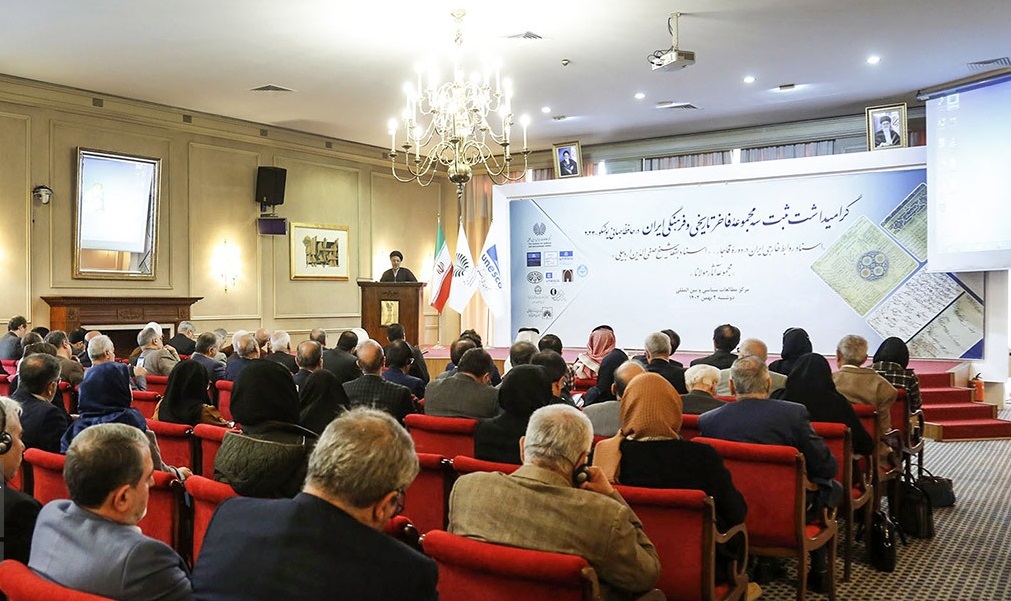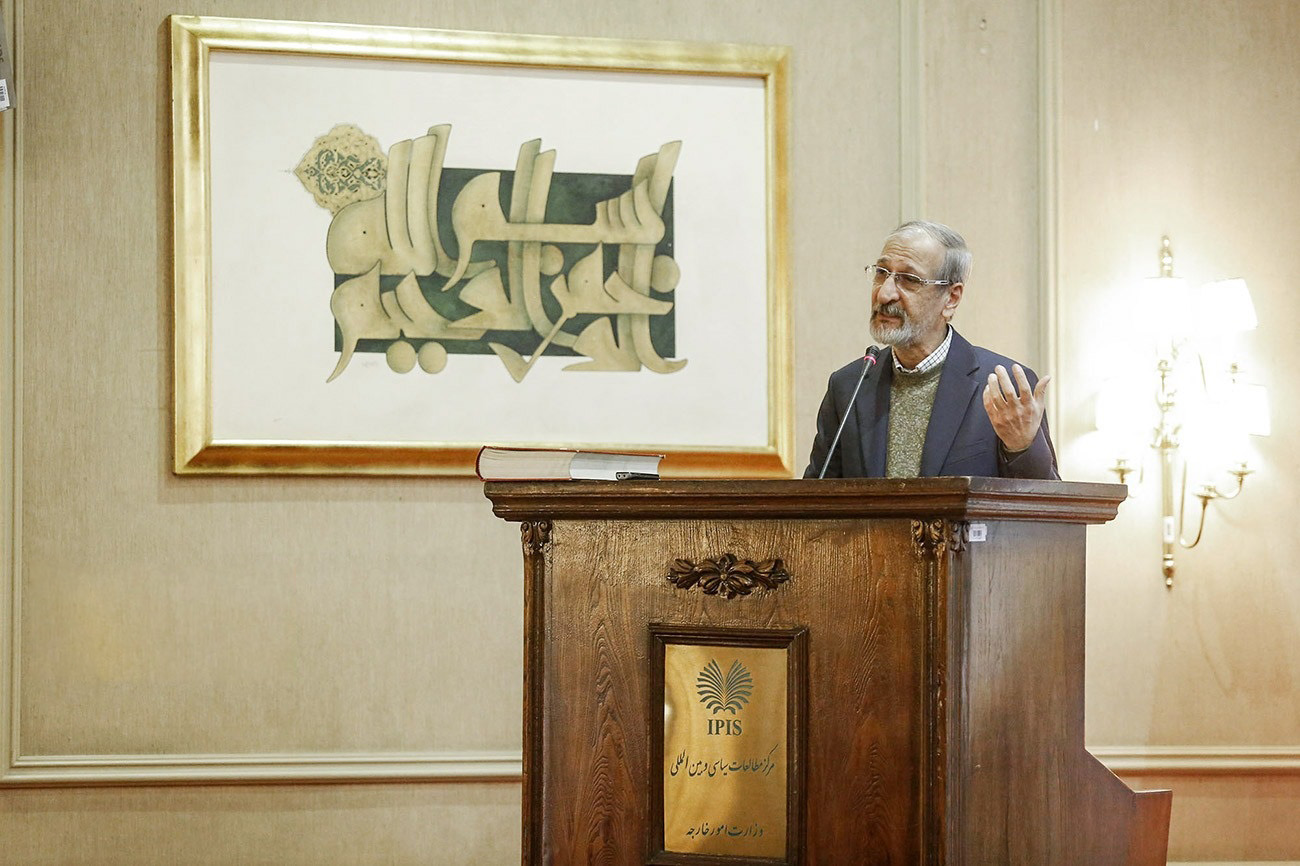The commemoration ritual of the world registration of three great Iranian works by UNESCO
The commemoration ceremony for the world registration of three great Iranian works in UNESCO including Documents of Irans Foreign Relations in the Qajar Period Documents of the Tomb of Sheikh Safi-ad-Din Ardabili and the Collection of Rumis Works was held on January 22 2024 at the initiative of the Institute for Political and International Studies (IPIS) of the Ministry of Foreign Affairs. The Iranian Commission National for UNESCO the Research Centre of Written Heritage and the National Museum of Iran participated
The commemoration ceremony for the world registration of three great Iranian works in UNESCO, including Documents of Iran's Foreign Relations in the Qajar Period, Documents of the Tomb of Sheikh Safi-ad-Din Ardabili, and the Collection of Rumi's Works, was held on January 22, 2024, at the initiative of the Institute for Political and International Studies (IPIS) of the Ministry of Foreign Affairs. The Iranian Commission National for UNESCO, the Research Centre of Written Heritage, and the National Museum of Iran participated.
In this ceremony, Mohammad Hassan Sheikholeslami, the President of the Institute for Political and International Studies of the Ministry of Foreign Affairs, touched on the importance of the international registration of these Iranian works and said: Understanding the history of the world is not complete without knowing the history of Iran because Iran has always been in the context of global developments and has been an important part of interactions, both when it acted as an active and powerful member in global and regional developments and when it was passively dragged into the abyss of international developments, an example of which is the occupation of Iran during the first and second world wars.
He stated: The diplomatic archive of the Ministry of Foreign Affairs of the Islamic Republic of Iran, which is one of the richest archives in the West Asian region, contains documents that a part of it tell the history of the country and the Iranian nation, and some of which tell the history of the world and international relations, and naturally, the second category is also of global importance.
The President of the Institute for Political and International Studies emphasized that the documents that have been internationally registered from the archives of the Ministry of Foreign Affairs and a part of which has been displayed today have exposed examples of the international relations between the countries of the world and Iran at an important moment in history. Presenting and introducing the documents of Iran's foreign relations to the society, especially scientific circles, was and is a part of the scientific and cultural diplomacy of the Ministry of Foreign Affairs of the country.
Akbar Matkan, the Secretary General of the Iranian National Commission for UNESCO, also stated: According to the United Nations Universal Declaration of Human Rights, it is the inalienable right of all people to know the truth of past events. The right to know means that documents and heritage, manuscripts, maps and inscriptions, etc., must be preserved. The necessary measures should be taken to prevent the destruction, concealment, and falsification of documents, and access to documents should be facilitated and accelerated to conduct historical research.
This official reminded us that the global registration of the cases of these three magnificent historical and cultural works, including Documents of Iran's Foreign Relations in the Qajar Period, Documents of the Tomb of Sheikh Safi-ad-Din Ardabili, and the Collection of Rumi's Works (Divan-i Shams), was another honor for Iran in the world arena. These works were prepared and compiled by the members of the National Committee of World Memory in the Iranian National Commission for UNESCO and sent to UNESCO.
In another part of his speech, the Secretary General of the Iranian National Commission for UNESCO talked about these three great works: After that, the International Advisory Council (IAC) of the World Memory Program reviewed and evaluated the proposed works for global registration in the Documentary Heritage List of the World Memory Program, and fortunately, in the 216th session of the UNESCO Executive Council, which was held in May of this year, after examining the value of these works and their compliance with the introduced technical criteria, it was approved by this council, which consists of 58 countries.
Also, the case compilers of these works for global registration, while presenting reports on the process of global registration of each work, received a certificate of appreciation and a certificate of registration of works. An exhibition of these works was also opened on the sidelines of the ceremony.



